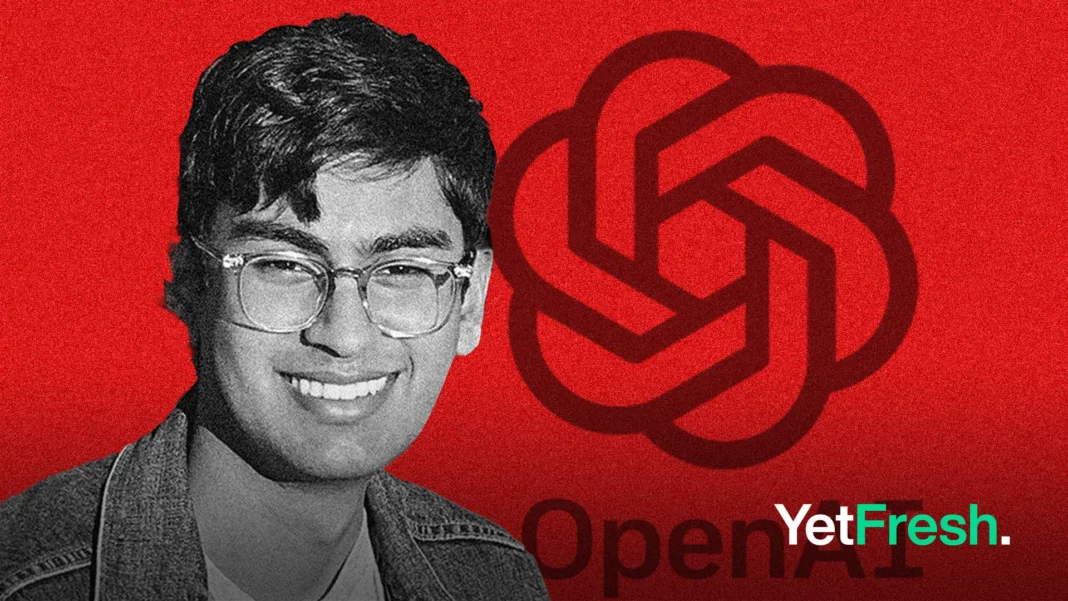Summary:
- The incident has reignited discussions on the ethical and legal implications of generative AI technologies and their impact on content creators.
- Suchir Balaji, a former OpenAI researcher, was found dead in his San Francisco apartment on November 26, with authorities ruling the death as suicide and no evidence of foul play.
- Balaji had raised significant concerns about OpenAI’s use of copyrighted material to train its AI models, questioning the ethics and legality of these practices.
- His death occurred shortly after he was named in a copyright lawsuit against OpenAI, highlighting his role as a whistleblower.
The tragic death of 26-year-old Suchir Balaji, a former OpenAI researcher and whistleblower, has sent shockwaves through the tech community and reignited debates over the ethical and legal implications of artificial intelligence (AI). Balaji was found dead in his San Francisco apartment on November 26, with the San Francisco Medical Examiner’s Office confirming the cause of death as suicide. Authorities have ruled out foul play.
Balaji, an Indian-American computer scientist, had worked at OpenAI for nearly four years before resigning in August 2024. His departure was driven by growing concerns over the company’s use of copyrighted material to train its generative AI models, including ChatGPT. In an October interview with The New York Times, he criticized OpenAI’s reliance on “fair use” as a legal defense, stating that generative AI products often create substitutes that compete directly with the data they are trained on. “If you believe what I believe, you have to just leave the company,” Balaji remarked during the interview.
The timing of Balaji’s death has raised questions, as it occurred just one day after his name was mentioned in a court filing related to a copyright lawsuit against OpenAI. The lawsuit is one of several ongoing legal challenges accusing the company of improperly using copyrighted content without authorization. As part of a compromise, OpenAI had agreed to search Balaji’s custodial files for evidence tied to his whistleblowing allegations.
Balaji’s criticisms of OpenAI extended beyond legal concerns. He expressed fears that AI technologies could harm society and undermine the internet ecosystem if left unchecked. In his final social media post in October, he wrote: “Fair use seems like a pretty implausible defense for a lot of generative AI products, for the basic reason that they can create substitutes that compete with the data they’re trained on.”
During his tenure at OpenAI, Balaji contributed significantly to projects like WebGPT and GPT-4. However, his growing unease with the company’s practices led him to become one of its most vocal internal critics. His public statements and blog posts highlighted ethical dilemmas surrounding AI development, particularly regarding intellectual property rights and the broader societal impact of generative AI technologies.
The news of Balaji’s death has prompted an outpouring of grief from colleagues and industry peers. Gary Marcus, a prominent AI researcher, described him as “a good young man” who aspired to make the world a better place. Others have praised his courage in speaking out against powerful tech entities.
OpenAI expressed condolences in a statement: “We are devastated to learn of this incredibly sad news today and our hearts go out to Suchir’s loved ones during this difficult time.”
Balaji’s passing has intensified scrutiny on OpenAI and other generative AI companies facing lawsuits over their data practices. Critics argue that these firms exploit copyrighted material without proper compensation or transparency. Legal experts predict that Balaji’s revelations will play a pivotal role in shaping ongoing litigation and policy discussions around AI ethics.
Raised in Cupertino, California, Balaji graduated from UC Berkeley with a degree in computer science before joining OpenAI as an intern and later as a full-time researcher. His legacy as an advocate for ethical AI development underscores the human cost of challenging powerful corporations in high-stakes industries.
As the tech world mourns his loss, Balaji’s story serves as a stark reminder of the personal toll associated with whistleblowing and the urgent need for accountability in AI innovation.




